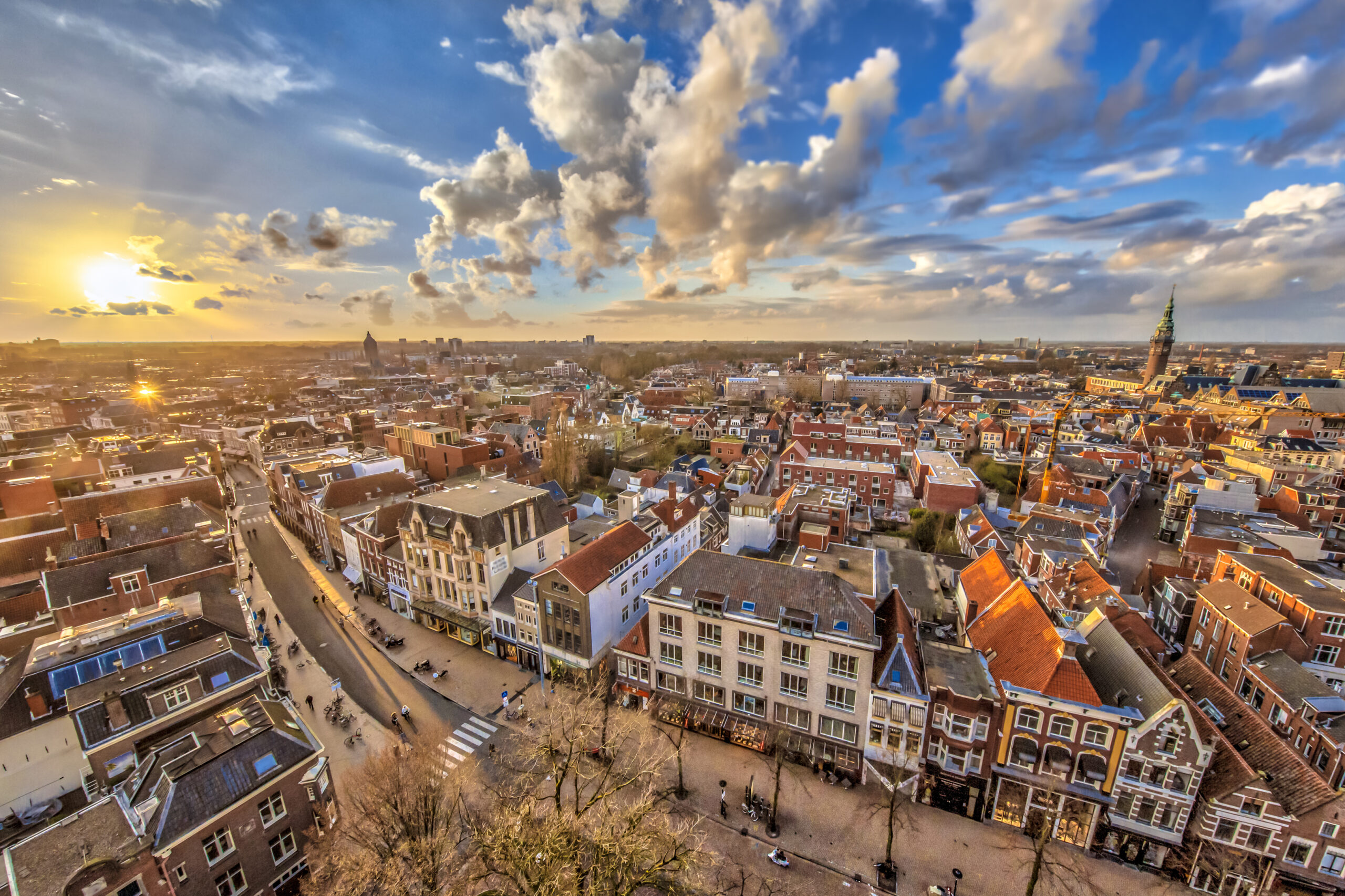
Groningen is the capital of the province of Groningen, located in the north of the Netherlands. The city is known for its cultural center and historic buildings. About 25% of the total population consists of students, making it the youngest city in the country. In 2021, the city has more than 200,000 inhabitants, making it the sixth largest city and municipality in the Netherlands. The InCUBE demonstration site is located in the Zeeheldenbuurt, close to the historic city center.
Owners of apartment buildings from the sixties and seventies throughout Europe are grappling with the challenge of renovating their aging buildings in a cost-effective and sustainable manner to meet modern demands. Completely dismantling these buildings is neither economically nor ecologically sustainable. Many such buildings, including the Heemskerckflat in the Zeeheldenbuurt, are reaching the end of their economic and technological lifespan and require thorough renovation to ensure they remain future-proof and meet current needs. In response to this challenge, initiatives like InCUBE aim to find innovative solutions for modernizing these buildings while preserving their character and functionality.
Apartment buildings in Europe, especially those built in the sixties and seventies, are facing a significant problem. Many were constructed as affordable homes for families, but now, after about fifty years, they are old and outdated. During InCUBE, various innovations are being applied to learn how buildings can be renovated in an industrial manner. The best practices and lessons learned will be used in renovating decorative buildings across Europe.
The Dutch housing association Lefier owns eight similar tall apartment buildings that are in need of thorough renovation. Lefier has reserved €12.5 million to renovate one of these buildings, with the majority (€9.7 million) going towards energy-saving changes. This building is being used by InCUBE as a pilot project. For the remaining seven buildings, Lefier has allocated €70 million, with €54 million focused on energy improvements. The renovation of one building is expected to take about 15 months.
The privately-owned apartment complex targeted by InCUBE is located in the Zeeheldenbuurt. Originally built in 1966 for families, the property is now used for student housing. It is quite large, with a total floor area of 9,800 square meters and over 265 students living in shared apartments. However, compared to newer buildings, it has poor energy efficiency, and the apartments need a complete makeover, including floors, windows, kitchens, and bathrooms. This renovation also involves better insulation, ventilation, and lighting to make the living spaces more comfortable. Originally designed for families, the apartments are being redesigned to accommodate 2-3 students each, with each group sharing a living room and kitchen.
InCUBE aims to strengthen planned activities at both building and neighborhood levels through various innovative interventions:
The solutions tested within InCUBE offer significant replication potential. Lefier, owning seven similar buildings totaling approximately 60,000 square meters with over 2,000 residents and an energy consumption of 24,616 MWh per year. By implementing InCUBE solutions, which focus on addressing common challenges, there is the opportunity to replicate successful renovation projects on a large scale across Europe. In the Netherlands alone, a considerable portion of households, about 15%, resides in similar apartment buildings, making them ideal candidates for testing InCUBE’s strategies. Additionally, Lefier’s buildings can serve as a valuable testbed for replicating InCUBE’s solutions, potentially leading to the formation of a renewable energy community, building upon the successes achieved in demo sites in Spain and Italy.
Stay informed! keep up with
the latest news and events

HORIZON-CL5-2021-D4-01
EUROPEAN COMMISSION
European Climate, Infrastructure and Environment Executive Agency
Grant agreement no. 101069610
This project is funded by the European Union under grant agreement no. 101069610. Views and opinions expressed are however those of the author(s) only and do not necessarily reflect those of the European Union or European Climate, Infrastructure and Environment Executive Agency (CINEA). Neither the European Union nor the granting authority can be held responsible for them.